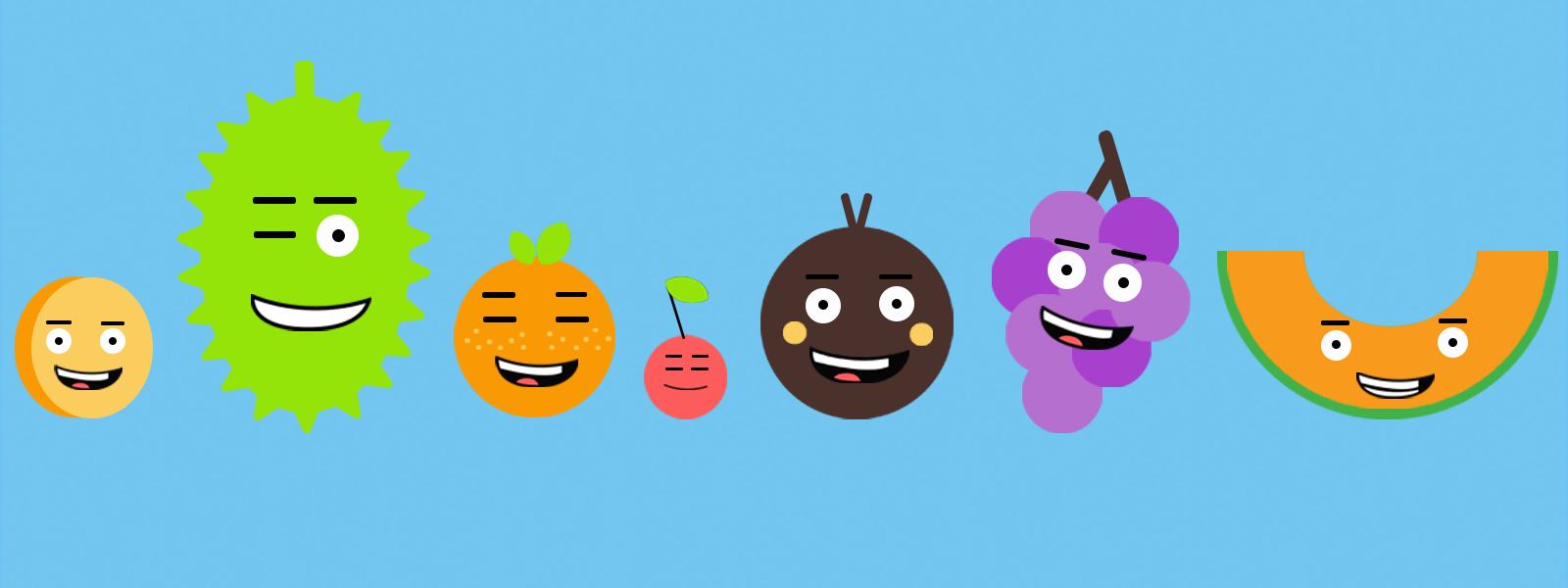This is a guest post from one of ProZ.com's advertising partners, Middlebury Institute of International Studies
By: Emily Cipriani

Artwork for the localization vendor management card game, Fruit Vendor. Designed by Emily Cipriani.
One of the more challenging parts of the localization industry is finding the right match between a localization team and a qualified translator. Where language service companies and translation and localization buyers often fail is in appreciating the gap between simply assigning a project to a translator (or just to someone who happens to be bilingual) and making an assignment to a vendor who understands the strategy and nuances necessary for success.
Enter Fruit Vendor, a new card game I created as a graduate student in translation and localization management at the Middlebury Institute of International Studies. I created the game in collaboration with my professor Alaina Brandt.
Buy or Bye? Making Language Services and Vendor Management More Fruitful
We based Fruit Vendor on the popular party game Apples to Apples, but instead of matching concepts to words, players match vendors to projects. The vendor cards, all fruit characters with names like Bookish Banana and Telecom Tangerine, are formed like mini CVs with lists of specializations, experience, education, tech skills, and price. Some cards have an overflow of specializations and some have only a few. The goal is to select vendors with specific expertise, not jacks (fruits) of all trades.
And, of course, there are some Bad Apple cards to be dealt. If work gets assigned to a Bad Apple, that person can play their Bad Apple card to steal all the project cards that have been won. This aspect of the game illustrates the cost of working with translator scammers: money, clients, reputation!
The Fruit Philosophy: Avoid Bias when Buying Localization and Translation Services
Why fruits? In an early draft of the game design, I had avatars of people, but we quickly realized that the process of assigning gender, skin color, and even small details like glasses had the potential to reflect bias in the vendor selection process. I came up with the idea to change the avatars to fruit, which ultimately created more entertaining, thematic gameplay.
Other elements of the game also demanded tough calls on bias. We avoided prioritizing specific languages by labeling the vendors as native speakers and native speakers of the target dialect. This also triggered interesting conversations about what it means to be a “native speaker.” There are plenty of competent, highly educated vendors who are heritage speakers, for example.
We also wanted to avoid the idea that high rates are a bad thing. Most of our vendor cards with higher rates also have high competencies, as reflected in high educational attainment, experience, and technology skills. In other words: quality is most often reflected in the rate you pay.
Professor Brandt wanted to reach the widest audience possible, especially the next generation of localization buyers. So, we needed to make learning about the importance of localization vendors fun. “When we finally sat down together to play, we weren’t certain if it would actually be compelling, but playing the game turned out to be so much fun,” Professor Brandt told me—and I agree!
If you’d like to learn more about the game, visit the Fruit Vendor website. You can also buy a print copy of the game via the Game Crafter.


.png?width=100&height=100&name=MIIS%20logo%20large%20(1).png)
